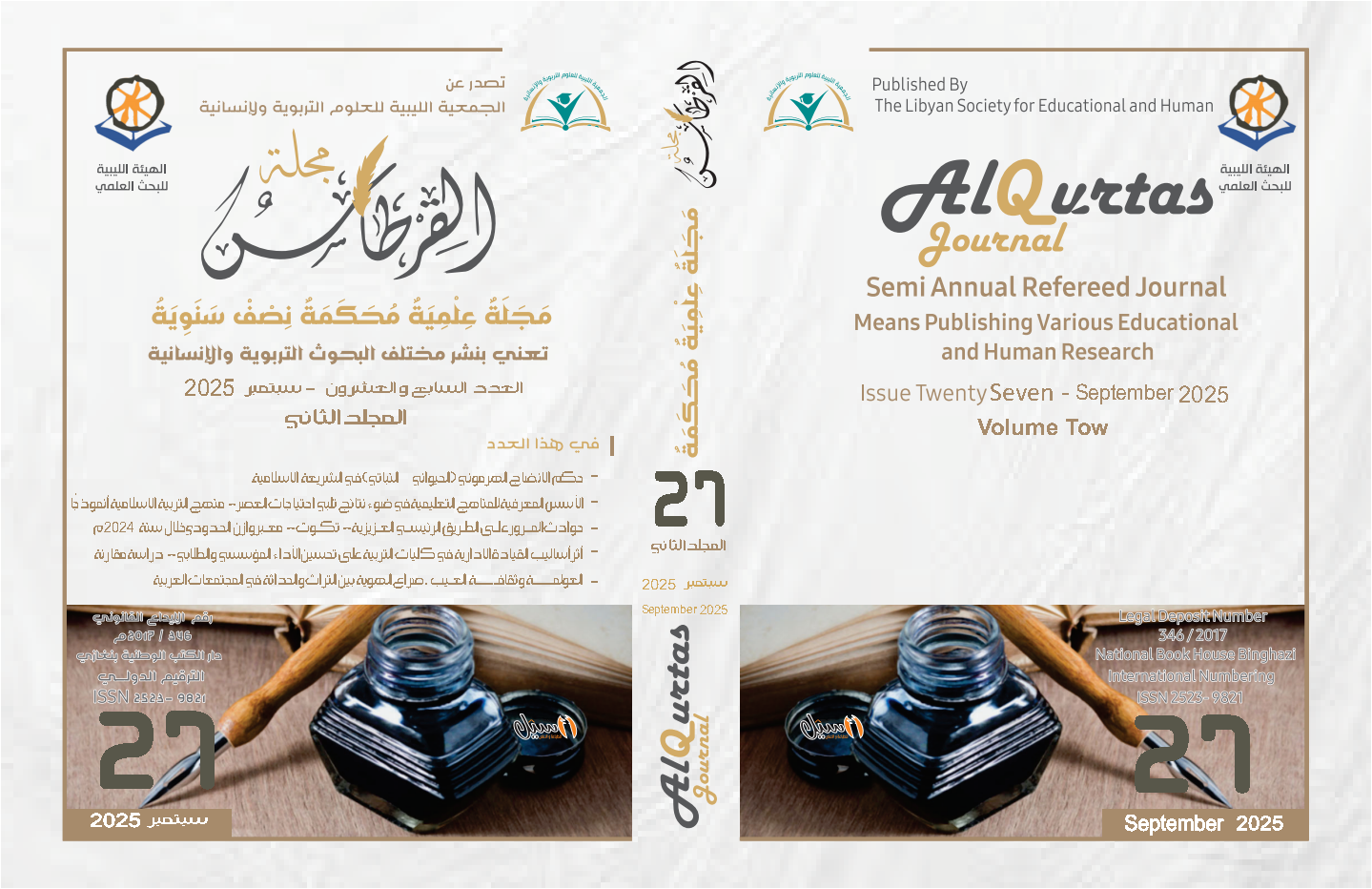حكم الإنضاج الهرموني (الحيواني – النباتي) في الشريعة الإسلامية
Contenu principal de l'article
Résumé
حكم الإنضاج الهرموني (الحيواني – النباتي) في الشريعة الإسلامية
Téléchargements
Les données relatives au téléchargement ne sont pas encore disponibles.
Renseignements sur l'article
Comment citer
أبوزيد و. ر. خ. . (2025). حكم الإنضاج الهرموني (الحيواني – النباتي) في الشريعة الإسلامية. Al-Qurtas Magazine, 2(27). Consulté à l’adresse https://alqurtas.alandalus-libya.org.ly/ojs/index.php/qjhar/article/view/1335
Rubrique
المقالات

Cette œuvre est sous licence Creative Commons Attribution - Pas d'Utilisation Commerciale 4.0 International.
